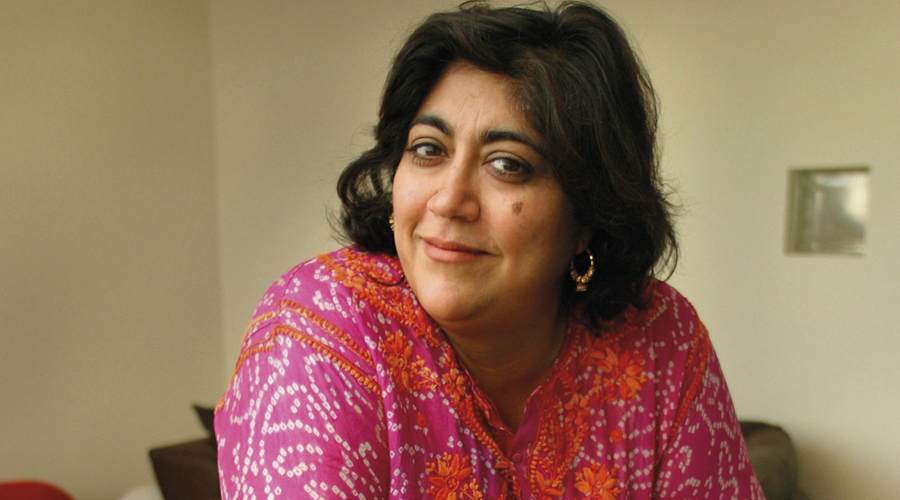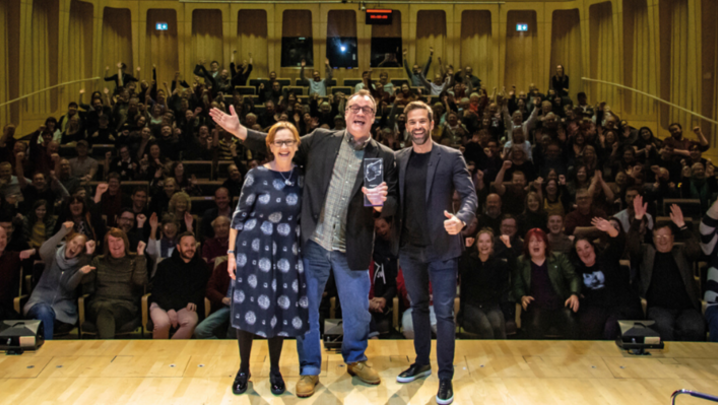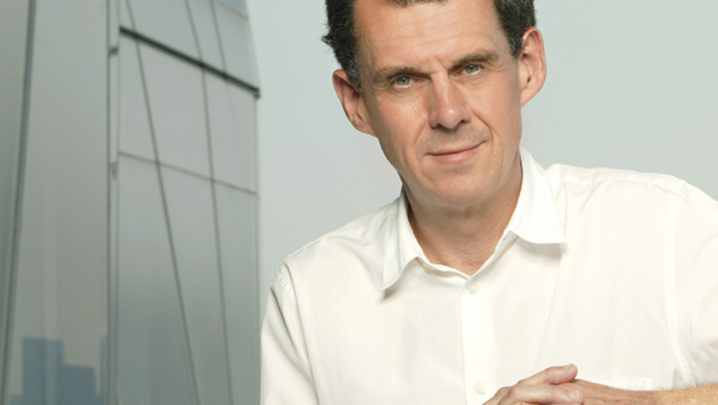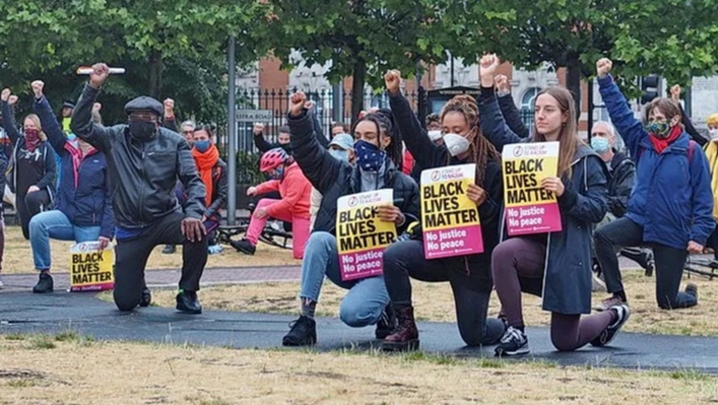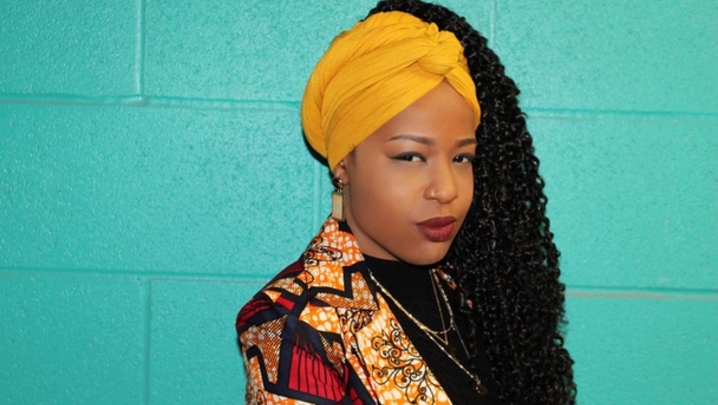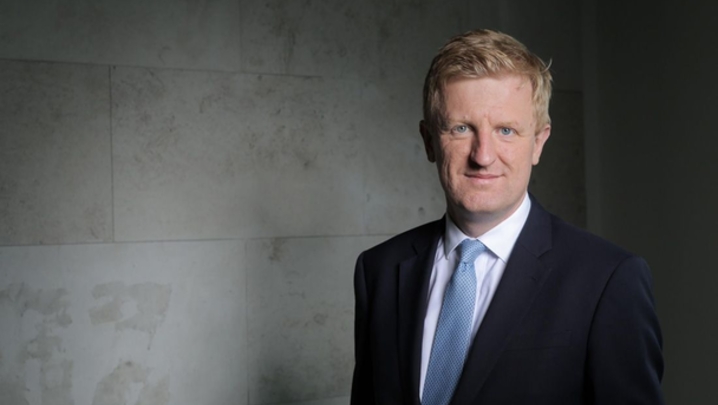Steve Clarke talks to Gurinder Chadha, who explains the background to her Sunday-night ITV costume drama set in 18th-century India
It’s 4pm on a Friday afternoon, a time of the week when most of us are preparing to wind down the working week. Not Gurinder Chadha, co-creator and director of ITV’s new period drama, Beecham House, otherwise known as “Downton in Delhi”.
She’s at work in a Soho edit suite, putting the finishing touches to another project, her latest movie, Blinded by the Light. The film is based on journalist and broadcaster Sarfraz Manzoor’s memoir, Greetings from Bury Park.
It sounds like familiar Chadha territory – the story of a how a British Pakistani teenager marooned in Luton during Thatcher’s Britain finds solace in the music of Bruce Springsteen.
The director first found acclaim for her award-winning debut, Bhaji on the Beach, followed by Bend It Like Beckham, a low-budget comedy whose central character is a football-obsessed Punjabi girl living in Southall.
Both were backed by Film4; Bend It Like Beckham became an unlikely global box office hit and turned Chadha into a hot property in cinema. By contrast, her TV career is less celebrated. Here, too, she has form – the two-part 1995 BBC One drama she directed, Rich Deceiver, achieved an audience of more than 10 million viewers. And, two years ago, she presented India’s Partition: The Forgotten Story for BBC Two.
Now comes Beecham House, a gorgeous-looking, quintessential Sunday-night drama set in late-18th-century India, when the imperial British were vying with the French to take control of India.
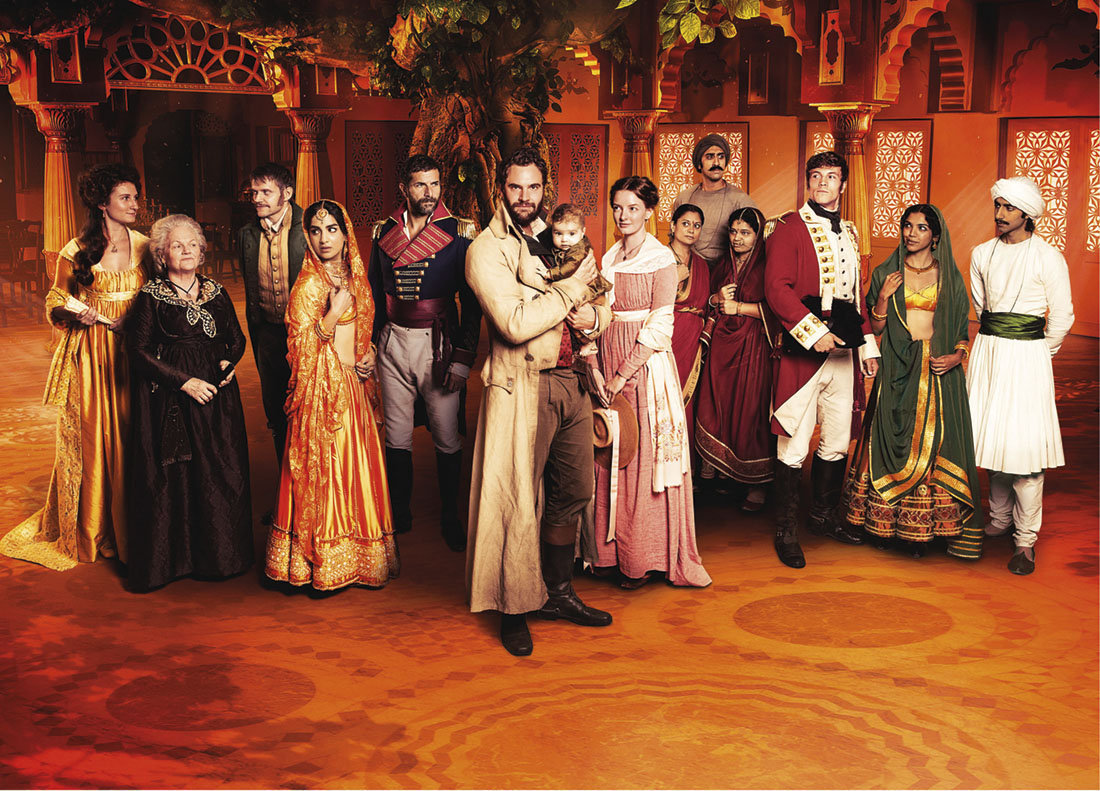
It stars Tom Bateman as the apparently morally scrupulous ex-East India Company trader John Beecham. His swaggering portrayal is likely to give Poldark’s Aidan Turner a run for his money in any summer tabloid contest for hot costume-drama action hero.
So why has Chadha forsaken modern Britain for a lavish TV period piece? Part of the inspiration for Beecham House was her recent feature film, Viceroy’s House, which was set in post-Second World War India. In common with the TV series, the film was co-written with her husband Paul Mayeda Berges.
“I was thinking that we’d like to do some long-form TV. We’d done all this research for Viceroy’s House and were waiting for the money to kick in,” she says, picking at an improvised late lunch of grated cheese and Brazil nuts. “Wine?” she offers. “It is Friday,” as she takes a swig from a plastic cup.
“At the time, Downton Abbey was flying high. I said to Paul: ‘We could do that. Let’s do our version set in India in 1795.’ Viceroy’s House was the end of the British Raj. Let’s start at the beginning.”
In common with the Julian Fellowes hit, Beecham House takes an Upstairs Downstairs-style perspective on events chez Beecham, but the parallels with Downton Abbey should not be overstated. One of the show’s attributes is the way it captures India’s indelible beauty, especially the subcontinent’s exquisite Mughal architecture.
Much of the series was shot in India, where Chadha directed all six episodes. In any case, it was Downton’s success that motivated her, rather than the show itself: “I didn’t really watch Downton. But I loved Upstairs Downstairs, I remember so many of the scenes. I still have the storylines in my head. I remember Pauline Collins coming in with a feather and lording it over the lady of the house.
“I always wanted to do a show like Upstairs, Downstairs, but not as formal as Downton Abbey. With Beecham House, I wanted to go back to the point where Delhi is still Indian, and ruled by the Mughals, though their power is waning.
“This Englishman arrives. No one knows what is going to happen to India. He’s an English immigrant 250 years ago. What I’m asking the audience to do is to be in his position. In many ways, he is quite a modern guy trying to make the right decisions, but trying to do them at a time when, politically, Europeans in India were at a crossroads.”
There is nothing new in India being used as eye candy for TV period drama. While Beecham House lacks the gravitas of, say, Jewel in the Crown, its characters and storylines have an infectious quality that may well secure several series.
When the programme was pitched to ITV drama head Polly Hill, the executive immediately saw its potential as Sunday-night drama. “Polly liked the stories,” says Chadha. “Initially, ITV was a little nervous because of Indian Summers, which wasn’t that successful. I felt its stories were very muddled.”
As mainstream as Beecham House undeniably is, the show’s political undercurrents are obvious and seem especially relevant as we continue to grapple with Brexit and hot-button issues such as immigration.
Chadha’s ascent via local radio and TV to pre-eminence as a film-maker seems unlikely in today’s less egalitarian age. Opportunities for those without wealth or contacts to succeed in the entertainment world are, to say the least, limited.
"I worked in the newsroom but I wasn’t able to tell my stories, our stories"
The daughter of an Indian shopkeeper who was regularly racially abused, she began her media career in the 1980s after reading development studies at the University of East Anglia in Norwich. “The only other Indian I met there was my driving instructor,” she recalls.
A career working for a charity such as Oxfam beckoned but, following voluntary work in India, where she read some feminist journalism, she started to wonder if the media might provide a more rewarding career. Returning to the UK and seeing Stuart Hall’s seminal BBC documentary, It Ain’t Half Racist, Mum, sealed the deal.
“That film opened my eyes, it was a Eureka moment for me.… Now I get it, the power the camera has to define who we are and how society sees us. It was at that moment, and seeing Stuart Hall’s work, that I started looking at TV differently. I thought the way to change things was to become a news journalist.”
She trained in broadcast journalism at what was then the London College of Printing, before joining BBC Radio West Midlands. “I worked in the newsroom but I wasn’t able to tell my stories, our stories,” Chadha remembers.
More satisfactory was a spell employed as a researcher on one of Channel 4’s early successes, The Media Show, a genuine trailblazer. Eventually, directing short films led to Film4 nurturing her as a director. The studio put her together with Meera Syal. The two co-wrote Bhaji on the Beach. The film showed she had an unusual ability to make entertaining, humorous films that engaged head-on with racism, sexism and patriarchy.
Beecham House may be prime-time ITV but, from the beginning of the series, it is clear that here is another Gurinder Chadha film full of feisty, empowered women.
“I’d like to think none of the women are docile. They have all got a bit of attitude, certainly by the end of the first episode,” she suggests. “That’s why it’s so important to have different people telling these stories. Diversity is not ‘Let’s stick a person of colour behind the camera’.… That’s important, but true diversity is when you allow someone to tell their story or show the world from their [own] perspective, because it’s the same but different.
“The success of some of my films isn’t because it’s only Indians watching them, or people like me. They are mainstream, commercial movies.
“I am one of the few British film-makers who has made a ton of money back for the BFI and the National Lottery by making very commercial films. I just happen to have people in them that most people wouldn’t think of as commercial.” Beecham House’s cast includes British Indian actors, British Caucasian actors, Indian actors, and an Indian Australian actress.
As for her own female role model, look no further than her 93-year-old mother. “When you looked at her you wouldn’t think she was feisty, because she did everything right. A nice, traditional Indian wife, but the strength and spirit and belief in justice for humanity that my mum embodies is where I get it all from.
“She has had relentless commitment to empathy for everybody.… For her, the world is connected. People might not know it but the world is connected because there is one God, it’s just different guises. Whether you believe in God, or a spiritual force, or whatever, there is one way that we are all connected.
“We can call it religion or we can call it human empathy, but my mother believes that it is very important that you live your life acknowledging that oneness. That’s what makes us human.”
She believes this? “That rubbed off on me. Everything I’ve done, every film I’ve made counters prejudice of any kind.”
"The relationship between Britain and India didn’t just start in the 1960s"
Produced by her own company, Bend It TV (in which Fremantle is an investor) Chadha says that Beecham House is “probably the first prime-time commission from ITV for a Sunday from a company of colour. Hats off to ITV for doing that.”
She adds: “I’m not going out there saving people’s lives by making a TV show. What I am doing is creating a TV show that is genially subversive. In a small way, it is saying: ‘Mate, this is actually what happened from my point of view. Come on the journey with us with these great characters, who will entertain you but also inform you about the world then and the impact that world has had on today.’”
What does Beecham House have to say about our own dark times? “Hopefully it will expose some of the lies that people are being told. The relationship between Britain and India didn’t just start in the 1960s, when people like my parents got off the plane. A lot of Britain’s wealth was built purely off the back of their – and my – Indian ancestors.”
What advice would she give to young women of colour determined to succeed in the film and TV sector? “Don’t take no for an answer, because there’s strength in numbers. You have to believe that now’s our time, you deserve that, and you have to own that. Go for it. Tell your stories because there are people who want to see them. You’re going to have to hold on to that and keep pushing for that.
“I’m sitting here now but it’s taken a long time for me to be in this position, and it’s not all milk and honey for me. My movie [Blinded by the Light] got turned down by the BBC and Channel 4.…
“I think it’s a great time to be creative. There’s a lot of choice. There’s a lot of drama out there. And the more there is, the more important it is to have your own, unique voice. Nowadays, people want uniqueness.”
Beecham House starts on ITV on 23 June.
‘Why I prefer nice to nasty’
‘There’s a push towards more genreled drama,’ says Gurinder Chadha. ‘Shows such as Bodyguard and Line of Duty are very popular. I can’t watch them because I’ve got so much stress in my life already [she is the mother of 11-year-old twins]. If I watch those shows, I’ll get too tense and I don’t want to be tense.
‘I don’t like movies that are thrillers. I’ve always been like that. Some people love being made to feel scared and anxious. It’s never been my cup of tea.
‘I abhor violence on TV. I don’t like [starting to laugh] people being nasty to each other. That sounds crass. I see it on the news, I don’t want to see it on TV. I don’t want to feel ashamed of how the world is when I am trying to relax.’

